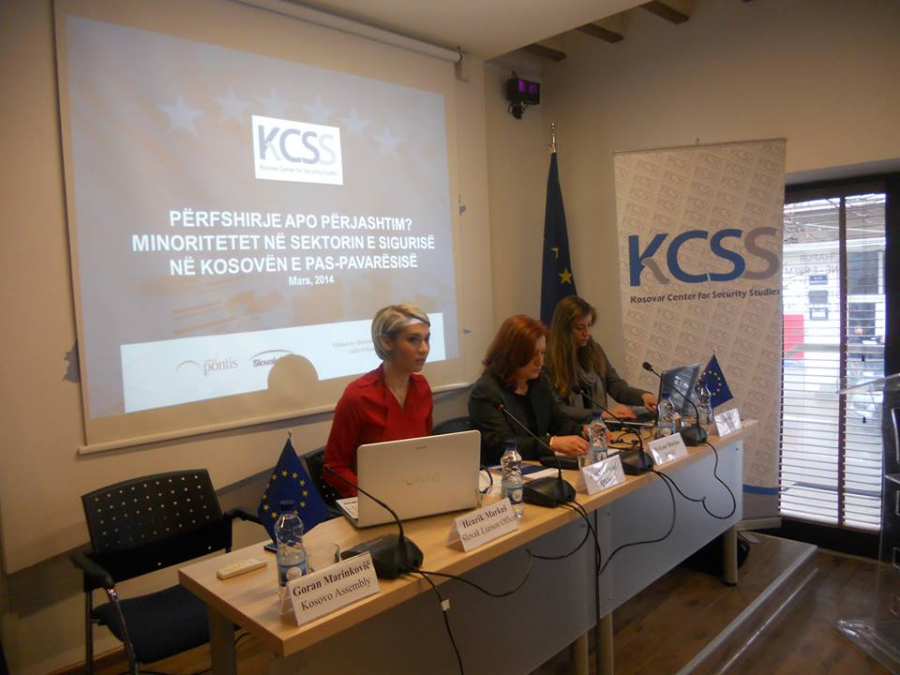5/03/2014

March the 5th, Kosovar Centre for Security Studies ( KCSS ) published the analysis entitled: " Inclusion or exclusion ? Minorities in the security sector in post - independent Kosovo".
The aim of this analysis is to provide a detailed overview of minority inclusion in Kosovo security sector, specifically institutions such as Kosovo Police, Kosovo Security Force and the Kosovo Security The main findings show that Kosovo has a very well consolidated legal framework that guarantees equal and dignified inclusion for all ethnic communities in Kosovo . However, the implementation of the current framework is still being challenged by political, social and economic factors.
While Kosovo Police is considered to be a "leader" in the representation of ethnic minorities, Kosovo Security Force still faces political challenges.
Kosovo police is composed of approximately 8,670 police officers and 1,143 civilian staff . By the end of 2013, around 84.22 % of the KP staff were Albanians, 11.49 % Serbs, and about 5 % were members of other ethnic groups. While, the integration of the Serb community in the KP stands around 12 %, however other ethnic groups like the Roma, Ashkali and Egyptian community are left aside, mostly due to their low level of education and access to information.
Regarding the Kosovo Security Force, the total number of uniformed members of the KSF has reached 2,294. During 2013 the percentage ethnic minorities within the KSF has reached up to 8.85%, with a very low participation of the Serb community with a total of only 1.83 %. The main reasons for the low representation of the Serbian community is the political factor and constant pressures from Belgrade and radical circles within Kosovo.